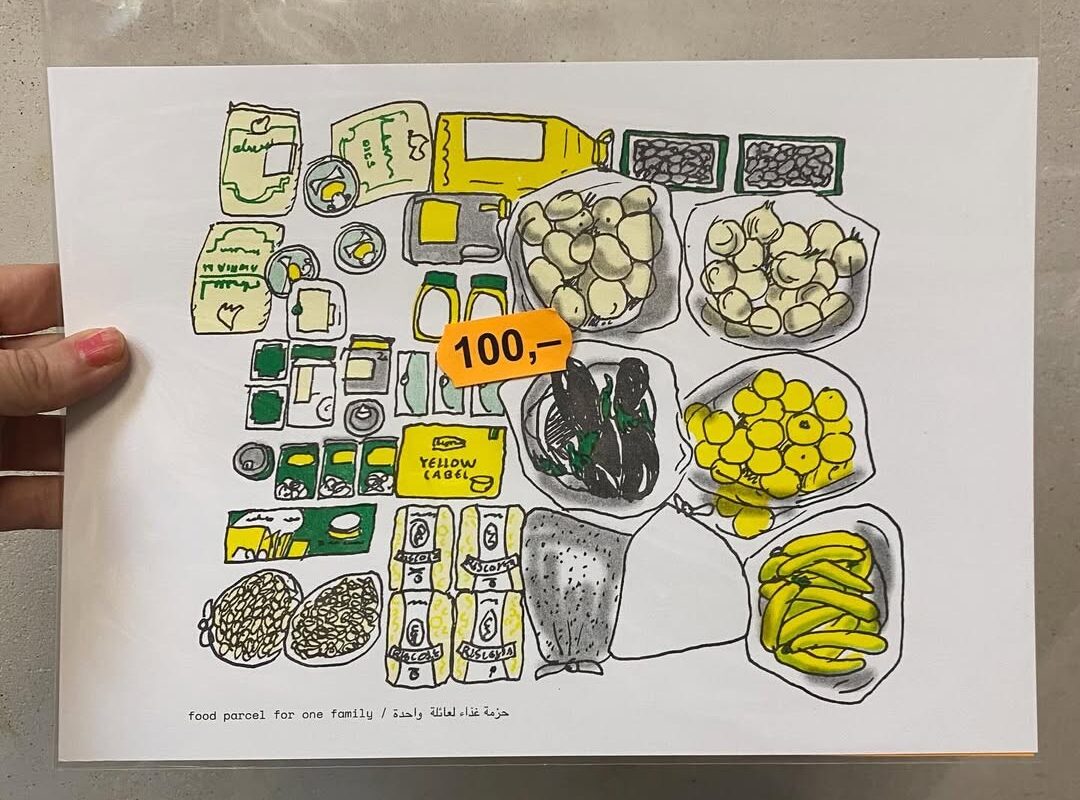Time of Pandemics is the new film by Rehad Desai, South African director of award-winning films about the Marikana massacre (Miners Shot Down) and the Rhodes Must Fall campaign. This film looks at two pandemics which have ravaged sub-Saharan Africa in recent decades – HIV/AIDS and Covid.
AIDS and HIV in South Africa
When the AIDS epidemic emerged in the 1980s, Western media coverage initially concentrated on the USA and Western Europe, but it was Africans who suffered the most. 35 Million have died worldwide from AIDS-related illnesses. Most infections have been in sub-Saharan Africa. At present, 9 million South Africans are HIV positive.
The high incidence of HIV in South Africa was largely down to two factors. Firstly, leading politicians denied that the disease could be fought. In parliament, president Thabo Mbeki rejected the possibility of effective treatment, saying: “when you ask the question, does HIV cause AIDS, the question is, does a virus cause a syndrome? How does a virus cause a syndrome? It can’t”.
South African AIDS victims had much more to deal with than obstinate politicians. Even without the obstruction of people like Mbeki, there was simply a lack of available antiretroviral drugs, which allow you to live with HIV and reduce the risk of transmission. Western pharmaceutical companies refused to allow these drugs to be used in the Global South if they could not bring a profit. South Africans had to wait 18 years for life saving medicine, resulting in 10 million deaths.
This combination of blaming the people who were suffering from AIDS and a lack of sufficient drugs led to health workers having to make impossible decisions. Human Rights lawyer Fatima Hassan explains how doctors were asked to decide who was “innocent” enough to be saved. This meant that infected nurses and rape victims were given medicine, but men who had sex with other men were not. As a result, infections increased.
Epidemiologist Rob Wallace explains how the development of HIV/AIDS and many other pandemics is linked to colonialism and capitalism. The original SIV virus (the precursor to HIV) was transmitted from chimpanzees to workers who had been sent to the rain forests to gain more profit for capital, then transmitted through trade routes to Kinshasha. It is not a coincidence that the main hotspots for disease and epidemics are now global trade centres like London and Hong Kong.
Wherever HIV became endemic in Africa, there was a rise in tuberculosis (TB). The two diseases both affected each other and also strained the health service. People with HIV are ten times more likely to develop active TB, and TB is the leading cause of death of people with HIV worldwide. The increase in HIV led to an increase in TB, and hospital infrastructure was not able to handle this. This also led to the development of drug resistant mutations in both HIV and TB. What this means is that every new epidemic does not just endanger the local population, it also brings the danger of a pandemic that can potentially spread globally.
Local activists formed the Treatment Action Campaign, which won the active support of former president Nelson Mandela. They put AIDS in South Africa on the international agenda. But the old power disparities remained. One pharma company felt compelled to voluntarily drop its patents, leading to much lower priced antiretroviral drugs – but these were only made available at the cheaper price in the developed world.
In 1986/1987, South African doctors joined their Western counterparts to work on an HIV vaccine. We are only now approaching the possibility of an effective vaccine against HIV and AIDS. Doctor Anthony Fauci, Chief Medical Advisor to the US president, calls this “definitely worth the investment, particularly among women in South Africa, who were at enormous risk.”
AIDS and Covid in the USA
South Africa was not the only country which had to deal with reactionary politicians. In a parliamentary debate, US Senator Jesse Helms claimed that “the subject matter is so obscene, so revolting that until we are ready to eliminate the types of activities which have caused the spread of the AIDS epidemic, I don’t think we’re ever going to stop it.”
President Ronald Reagan denied migrants with AIDS entry into the US. Reagan was not alone. In the mid-1980s, 81 countries passed legislation restricting the movement of HIV positive people. Migrants, gay men and Black people were all scapegoated for the failure of governments to adequately deal with a problem which could not be solved by a system based on profit.
Many of us remember how the AIDS epidemic was used to stigmatise gay men. But Black people were also demonised. Fauci explains how in the USA, African Americans, Latinx and Asian Americans have been disproportionately hit by Covid – largely because these are the groups most likely to be affected by poverty. As Fauci says: “ if you don’t understand that, you’re not going to get your arms around the disease.”
Despite not having HIV himself, Justin Lofton joined trials trying to find a cure, because as a black, gay man, he knows that he has a 50% chance of contracting HIV in his lifetime. In the film he explains that being black and gay in the Southern States is a double whammy which makes him a particular target for prejudice, facing discrimination in the housing market and even eviction.
With the emergence of Covid, we have experienced some familiar patterns. As with AIDS; this is partly to do with victim blaming from above. We are shown footage of then-president Trump railing against the so-called “China virus”. Trump also claimed that Covid will “just go away”. This helps explains why the greatest number of Covid deaths have been registered in the USA.
But Covid has also brought some new problems. Firstly, as AIDS was primarily transmitted by sexual contact, it could be severely reduced by safer sex (although is easier said than done and many women are faced with belligerent husbands who refuse to wear a condom). It is much easier to transmit Covid through everyday contact, making it even more dangerous.
But the problem is more systemic and international than just Trump’s racism. There has been a systematic disinvestment from public health spending. 28 million US Americans still have no health insurance, and 24 million are under-insured – despite the alleged benefits brought by Obamacare. New Public Private Partnership means that although Fauci says that “we were considered the best prepared country for the epidemic”, politics was allowed to intervene.
There is also the problem of lockdown. Towards the beginning of the pandemic South Africa implemented one of the most severe lockdowns that was seen worldwide. The main victims were the poor, who just could not afford to stockpile food. One of the side-effects of Covid in South Africa is that malnourishment has now reached epidemic proportions. This is not just a problem of the Global South.
How the WTO causes millions of deaths
And yet the problem is not simply caused by the US or South African governments, it is systemic. Chief Offender is the World Trade Organisation (WTO) which in the mid-1990s was able to implement Trade Related Aspects of Intellectual Property, better known as TRIPS. Simply put, TRIPS made unpatented generic drugs illegal. Big Pharma was able to set the prices for the drugs that were literally a matter of life and death for millions of people.
When the ANC government took over in South Africa in the early 1990s, the first question that the WTO put to them was whether they would respect patent rights (ie whether they would allow pharmaceutical companies set the price for anti-HIV – and later anti-Covid – drugs at a price that most people could not afford). Until the early 2000s, antiretroviral drugs in South Africa cost $15 thousand per year, even though much cheaper generic drugs from India were available.
As a response to TRIPS, countries in the Global South had some hope in COVAX, which was set up by the World Health Organisatoin to ensure that all countries get equal access to Covid vaccines. Yet, as medical journal The Lancet reported: “COVAX was a beautiful idea, born out of solidarity. Unfortunately it didn’t work … Rich countries behaved worse than anyone’s worst nightmares.” When the Delta version of Covid hit South Africa, only 2% of the population had been vaccinated.
Poor countries requested a TRIPS waiver during the Covid pandemic, which would allow them to use generic drugs. World leaders like Emmanuel Macron and Joe Biden made self-important speeches supporting this demand. And yet, the 2021 G7 summit in Cornwall – attended by Macron and Biden – rejected it. Many people in poor countries died as a result.
There was resistance to the WTO and to TRIPS, most notably at the WTO Conference in Seattle in 1999. Massive protests outside shut down the conference, giving countries that didn’t want TRIPS the confidence to make a stand. Protests shut down the WTO. Over the following years, lower and middle income countries won concessions to produce generic drugs. Fifteen years later, a WTO amendment on Intellectual Property Rights was a great gain for the poor countries.
These have been minor victories, but the war continues. In 2020, the US-American Federal Drugs Agency allowed emergency use of the Covid vaccine from BioNTech. In principle, this would mean free drugs for the Global South. And yet Vaccine Nationalism means that the rich countries who account for 13% of the world’s population have already bought up over half of the available vaccines.
What is the problem? And how can we solve it?
Director Rehad Desai describes the problem as “Zombie capitalism, marching us towards our mutual destruction.” Dr Aslam Dasoo, from the South African Public Health Forum explains: “Big Pharma is not owned by pharmacists. It’s owned by the hedge funds which require a return on investment. To make huge profits you need to be sole supplier.” Whether people live or die is simply not relevant unless it can be represented by an entry on the balance sheet.
The film ends with Desai accurately summarizing where we are:
“So, what has society learned from this Time of Pandemics? That we have encroached upon nature to the extent that it’s now only a matter of time before we face another threat? That seems clear enough. But what about the more difficult issue of how prepared we are for what’s to come?
Covid has revealed that our current approach to public health is simply not working. Maybe this is our last chance to go back to an older path we once travelled – health as a basic right, not letting the market determine who gets access to innovation. Not treating the Global South as a charity case and turning us into a petri dish of variants. Not letting the quest for profit lead us all further into catastrophe.
Is it really such a radical idea to put people first?
This is an angry film, which has a very real reason for its anger. And yet it is not without hope. The focus on our victories – on Seattle, on the brave doctors and patients who might make HIV/AIDS a disease of the past – means that it does not fall into mawkish cynicism. At the same time, it issues a clarion call: if we want to save lives, we need fundamental changes, and we need them now.
Times of Pandemics now has a German distributor and will hopefully be released later this year in Germany. When it does, you should go and see it, take your friends and colleagues, and discuss its serious implications. Many lives were lost to AIDS due to the policies of international governments and Big Business. We must not allow history to repeat itself.
For more information about Time of Pandemics, see its website. You can view the trailer here.




